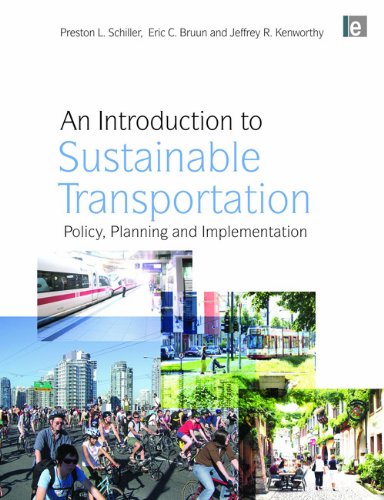Product desciption
An Introduction To Sustainable Transportation Policy Planning And Implementation Preston L Schiller by Preston L. Schiller, Eric Bruun, Jeffrey R. Kenworthy 9781844076659, 9781844076642, 1844076652, 1844076644 instant download after payment.
Transportation plays a substantial role in the modern world; it provides tremendous benefits to society, but it also imposes significant economic, social and environmental costs. Sustainable transport planning requires integrating environmental, social, and economic factors in order to develop optimal solutions to our many pressing issues, especially carbon emissions and climate change. This essential multi-authored work reflects a new sustainable transportation planning paradigm. It explores the concepts of sustainable development and sustainable transportation, describes practical techniques for comprehensive evaluation, provides tools for multi-modal transport planning, and presents innovative mobility management solutions to transportation problems. Students of various disciplines, planners, policymakers and concerned citizens will find many of its provocative ideas and approaches of considerable value as they engage in the processes of understanding and changing transportation towards greater sustainability. This text reflects a fundamental change in transportation decision making. It focuses on accessibility rather than mobility, emphasizes the need to expand the range of options and impacts considered in analysis, and provides practical tools to allow planners, policy makers and the general public to determine the best solution to the transportation problems facing a community. The book starts by placing transportation within the broader sustainability discussion, emphasising a comprehensive approach to sustainability planning and introducing the notion of 'regenerative transportation'. In sections on policymaking and planning the book examines how decisions are currently, and how they should be, made - explaining the complex and often misunderstood area of public participation. The authors explain demand management as applied to transportation and present lessons from other public arenas and areas of application, especially in urban-suburban areas. The text takes readers through each and every mode of transport, beginning with human-powered modes and ending in motorized modes, including marine and air transport. The modes are analyzed separately and in comparison with others according to several criteria: Capacity/utility/functionality considerations; infrastructure demands; resource consumption; land use considerations; pollution; and costs. In ways that non-technically trained readers as well as planning students professionals can find useful the book includes guidance on how to optimize transportation systems; balancing economic, social and environmental objectives while creating just, robust, and diverse, rather than one-size-fits-all, solutions. The modes are grouped and compared within their respective contexts, and there is vital discussion and differentiation between passenger and freight-goods transport. The final section develops a comprehensive summary of the previous chapters and develops arguments for sustainable transportation policymaking and integrated planning, providing international examples and case studies and extracting from them general applications for integrated sustainable transportation. Featuring extensive international examples and case-studies, textboxes, graphics, recommended reading and end of chapter questions, the authors draw on considerable teaching and researching experience to present an essential, ground-breaking and authoritative text on sustainable transport.


